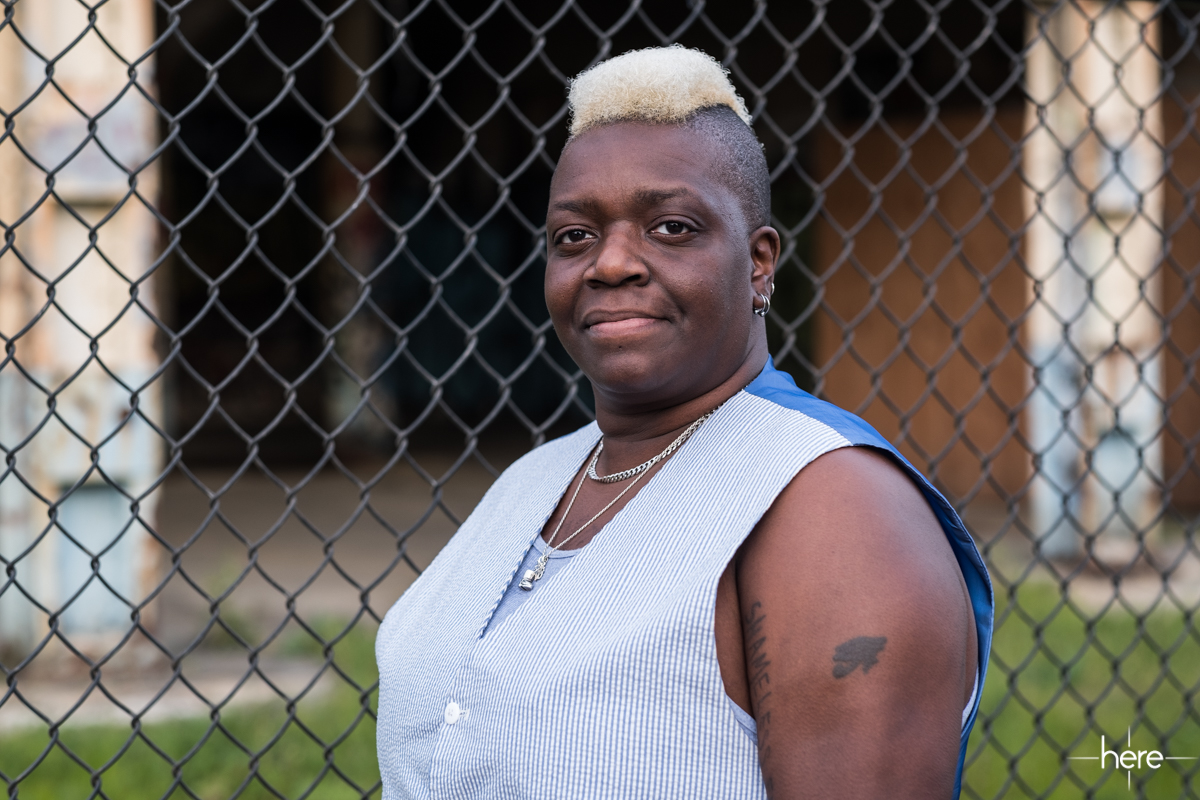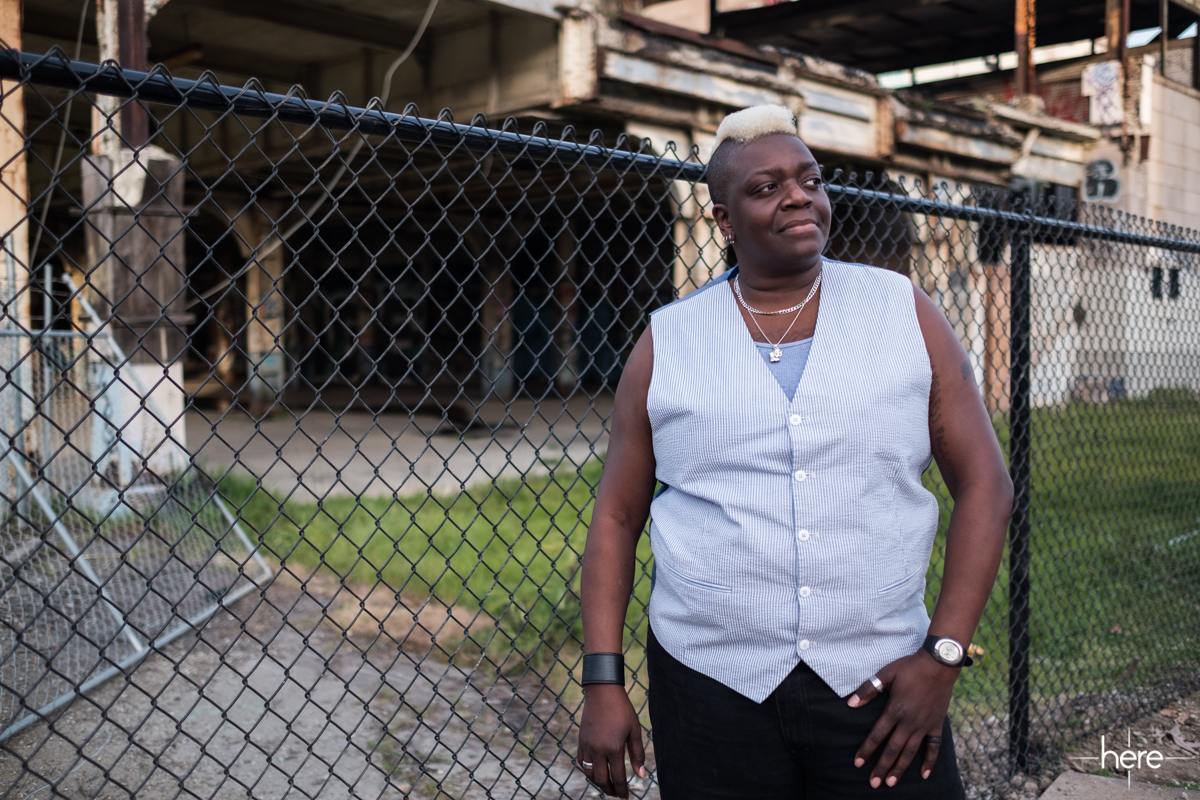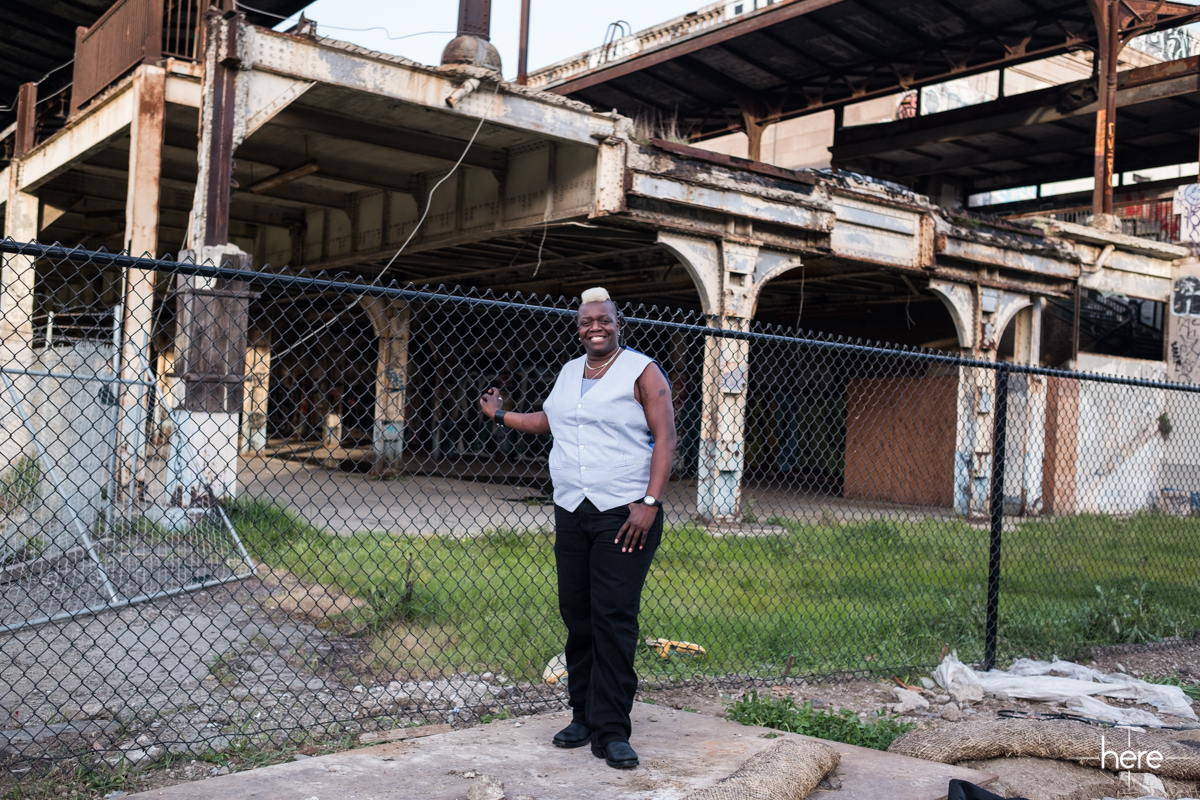I was born and raised in Columbia, SC. That’s also where I was when I figured out that I was gay. Growing up, there were no gay people (that I knew of anyway) in my neighborhood. Growing up as a skinny, bookish, glasses-wearing kid in the projects didn’t give me a very wide, or hopeful, view of the world at large. I didn’t even really know what “gay” was. Having no real framework for what that could look like, I just lived my life doing things my way.
I’ve worked almost consistently since the age of 15 (I may have lied about my age to get my first job). I’ve been supporting myself since I was 17 or 18. I learned at a young age that people will say and do ridiculously inappropriate things simply because I’m providing them a service, like waiting tables. I’ve been a server (among a gazillion other things!) in everything from wing joints to fine dining. Let’s just say, I’ve seen some shit and much of it wasn’t pretty.
My identity has evolved over the years through my lived experience. My first exposure to being ‘gay’ was a coworker who was out when I was 18. She was a year younger than me and had such a strength about her that it made me weak. She was a soft butchish human and every time she walked in the door at work, I turned into a wreck. At least, that’s what my friends said. I didn’t notice because I was struggling internally with my feelings that had no construct in which to exist. As had become my custom when I needed to think things through, I went and sat by the lake and just let all my thoughts and feelings surface. My initial thought was that I was going crazy. Then all the thoughts fell into place and I realized I wasn’t crazy, I was gay! I was so flippin’ relieved and went over to my friend’s place to tell them. They were just as relieved as I was. Apparently, they were about to sit me down and point out the possibility that I was gay. They ended up throwing me a coming out party, complete with a keg and flyers. That was when I learned what feeling supported felt like and the importance of our families of choice.
When you have yourself to rely on to feed yourself, you don’t usually have much time to pontificate over the latest Queer Theory masterpiece. There are dishes to wash, meals to make, laundry to do and a wealth of other things that have you feeling like you’re Dory from ‘Finding Nemo’, singing just keep swimming. I’m not an academic queer. I’ve probably only read two books in the queer theory cannon; and my identity is as valid as anyone else’s, so is yours. As a consistently underemployed human, I sometimes wonder why I took on so much debt to get that stupid piece of paper.
My work…my existence is heavily informed by my lived experience. I draw on my kink/leather/BDSM, queer, and sex worker communities, all of which must be viewed through the lens of being POC in this country. Layer on to all of those things, choosing to move through the world as a masculine of center human, and I’m back to being Dory.
In some ways, I think growing up a Black kid in the south prepared me for a life of someone who is accustomed to someone, somewhere having a problem with my existence based solely on things I have no control over…and they have NO problem letting me know about it. Racism was a prevalent force throughout my entire life; the kind of racism that burns a cross in the rural-ish neighborhood to which you and your white girlfriend have relocated. The kind of racism that means you and your white friends can’t go skinny dipping because the monthly Klan meeting is happening at the lake that night. I think I developed a much thicker skin much faster, even if I am a giant marshmallow underneath it all.
If I could offer any advice to queerios of all stripes it would be the following: For those folks who include sex in their lives, in any of its myriad of forms, life’s too short to have bad sex. Learn what pleases you and be unashamed to ask for what you need. You deserve joy and pleasure. Full stop. The other thing I would like to encourage us all to do is to raise your standards. Raise your standards about the people in your life, your job, the people you date, how you treat yourself. Raise your standards, you are worthy.

I was so excited when Tristan told me about where we would be doing the shoot. I had been researching the old 16th Street Station since shortly after I moved to the Bay Area. The history of the station is amazing and I hope that it will be properly preserved. Here’s a little about the importance of the train station’s role in the development of Oakland.
The 16th Street Station was the end of the line for the transcontinental rail line of Southern Pacific Railroad. At the height of its use, between the rail traffic and the electric trains, the station saw over 400 trains come through each day. The 16th Street Station was the place of disembarkation for African Americans who left the South, particularly Texas and Louisiana, looking for jobs and to start new lives.
Many African American men were employed as porters for the Pullman Palace Car Company, and the headquarters of their union, the Brotherhood of Sleeping Car Porters, the first Black labor union in the country, was at 5th and Wood Streets. The kind of money these men made as Pullman Porters afforded them an economic status higher than many white people of the time. With their wealth and middle-class status, they began purchasing homes, property, and cars in West Oakland.
By 1930, West Oakland was a thriving, predominately African-American neighborhood with about 3000 residents. Seventh Street was lined with jazz and blues clubs. Marcus Garvey’s Universal Negro Improvement Association had its West Coast headquarters at 8th and Chester Streets. The 1940’s saw a decline in population as people started driving cars more and rail travel fell out of favor forcing former railroad employees to go elsewhere to seek work.
When the Cypress Freeway, a freeway that connected the San Francisco/Oakland Bay Bridge with the Nimitz Freeway, was built in the 1950s above Cypress Street, it effectively split the neighborhood in half and isolated West Oakland from downtown Oakland.
During the Loma Prieta earthquake of 1989, the Cypress Freeway collapsed. Many West Oakland residents were first on the scene and immediately began rendering aid to all the people they could reach, even as police tried to detain them for suspected looting.
West Oakland residents successfully fought efforts to rebuild the freeway in the same location. Unfortunately, with the freeway now gone, the gentrification of West Oakland began in earnest.
The 2010 Census showed a 25% drop in the Black population of the city of Oakland. Having long been a center of African American culture in this country, it is beyond sad to see those who created this amazing, vibrant city being pushed out by skyrocketing housing costs and shitty opportunities for education and employment. I hope the newer residents of West Oakland will go the lengths necessary to preserve the history and heart of Oakland. I hope, but I’m not holding my breath.
Q
gender-nonconforming, dapper leather boi
Gender Id : Queer
Age : 45
Location : Oakland

